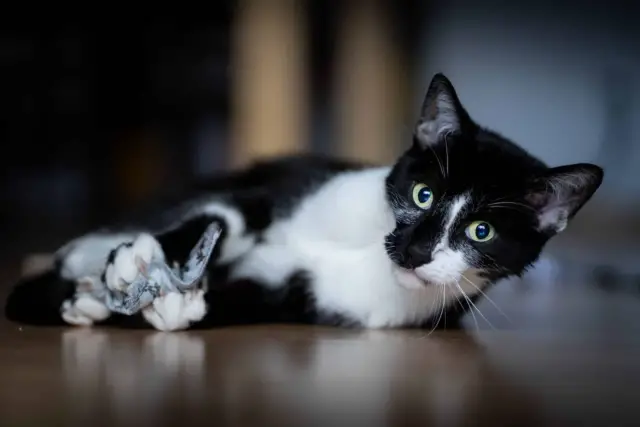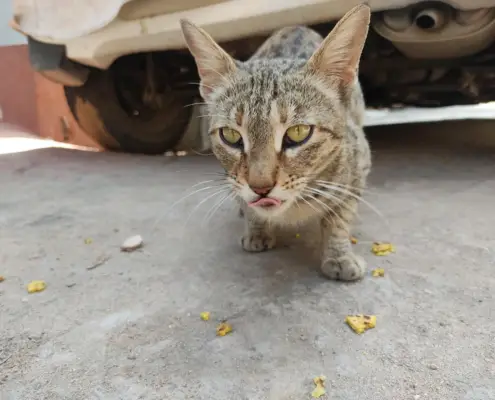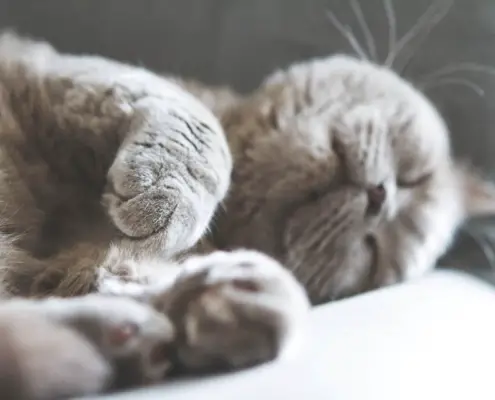
Cats have long been known for their mysterious and often enigmatic behavior. From their ability to navigate in complete darkness to their uncanny knack for predicting natural disasters, cats have been attributed with a unique sixth sense. In recent years, researchers and cat owners alike have begun to wonder if this sixth sense extends to detecting human emotions, particularly depression. In this article, we will delve into the fascinating world of the feline sixth sense and explore the connection between cats and depression.
Understanding depression and its impact
Depression is a complex and debilitating mental health condition that affects millions of people worldwide. It is characterized by persistent feelings of sadness, hopelessness, and a loss of interest in activities once enjoyed. Depression can have a profound impact on a person’s daily life, affecting their relationships, work, and overall well-being. While there are various treatments available, including therapy and medication, researchers are constantly seeking new ways to understand and manage this condition.
Theories on how cats detect emotions
One theory on how cats detect emotions, including depression, is through their keen sense of smell. Cats possess an extraordinary olfactory system, with a sense of smell that is far superior to humans. It is believed that cats can detect changes in the chemical composition of a person’s body odor, which may be indicative of emotional states. When a person is depressed, their body produces different chemical signals that may be discernible to a cat’s sensitive nose.
Another theory suggests that cats are highly attuned to subtle changes in human behavior and body language. They are skilled observers and can pick up on cues that indicate a person’s emotional state. Cats are known to be highly perceptive animals, and they may be able to sense changes in their owner’s mood, posture, or energy levels, which could be indicative of depression.
Can cats really smell depression?
While there is anecdotal evidence to suggest that cats can detect depression, the scientific research on this topic is still in its infancy. Some studies have shown that cats can differentiate between the scent of people with and without depression, but further research is needed to understand the extent of their olfactory capabilities. It is important to note that cats are not trained to detect depression and their ability to detect emotional states may vary from cat to cat.
Research on the connection between cats and depression
Despite the limited scientific research on the topic, many cat owners have reported positive experiences with their feline companions when dealing with depression. Cats are known for their calming presence and the comfort they provide. Interacting with a cat can release endorphins, the “feel-good” hormones, which can help alleviate symptoms of depression. In addition, the act of caring for a cat can provide a sense of purpose and responsibility, which can be especially beneficial for individuals struggling with depression.
Case studies and personal anecdotes
Many cat owners have shared their personal stories of how their feline friends have helped them through periods of depression. These anecdotes often describe instances where cats have provided comfort, companionship, and a distraction from negative thoughts. Some owners have even credited their cats with saving their lives, as the presence of a cat provided a reason to keep going during their darkest moments. While these stories are not scientific evidence, they highlight the potential positive impact that cats can have on mental health.
How cats provide emotional support
Cats have a unique ability to provide emotional support to their owners. Their gentle purring vibrations have a calming effect and can lower stress levels. The act of petting a cat can release oxytocin, a hormone that promotes feelings of love and bonding. Cats also provide a sense of companionship, as they are often content to curl up beside their owners and simply be present. This can be particularly comforting for individuals who may feel isolated or alone due to their depression.
The benefits of having a cat for mental health
Owning a cat can have numerous benefits for mental health, especially for individuals dealing with depression. Cats offer unconditional love and acceptance, which can help combat feelings of worthlessness or self-doubt. The responsibility of caring for a cat can also provide a sense of structure and routine, which can be helpful in managing symptoms of depression. Additionally, the presence of a cat can reduce feelings of loneliness and provide a source of comfort during difficult times.
Other ways cats can help with mental health
Beyond their ability to provide emotional support, cats can also help individuals with depression in other ways. The simple act of engaging with a cat, whether through play or grooming, can provide a distraction from negative thoughts and promote a more positive mindset. Cats can also encourage physical activity, as playing with a cat can involve movement and exercise. Regular physical activity has been shown to have a positive impact on mental health, including reducing symptoms of depression.
The power of the feline sixth sense
While the scientific research on cats’ ability to detect and respond to human emotions, specifically depression, is still ongoing, there is a growing body of anecdotal evidence that suggests cats can provide valuable emotional support to individuals struggling with mental health issues. Whether through their keen sense of smell, their perceptive nature, or their calming presence, cats have the potential to make a positive impact on the lives of those dealing with depression. If you or someone you know is experiencing depression, consider the potential benefits of having a feline companion by your side.
If you enjoyed my article, I would appreciate you sharing it with your network.

Sima Ndlebe
Sima writes for CatBuzz. He is interested in Cats, Health and Fitness, and Entrepreneurship.
Published: 23 October 2023



